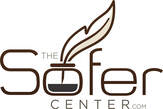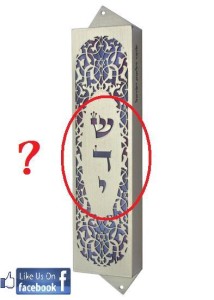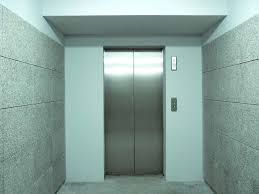0 Comments
 Maintaining regular use. A Torah scroll should be read from regularly for the weekly reading or at least rolled to a different section on a regular basis to prevent the ink from fading and cracking. Using a Torah scroll exclusively for the reading of Rosh Chodesh for example will not suffice, even though it is used monthly. Here are a few suggested ideas. - Use a different Torah scroll for each of the four weekly readings (Monday mornings, Thursday morning Shabbos morning and Shabbos afternoon). -Set up a rolling schedule for those Torah scrolls not used for the weekly reading so that they are rolled from beginning to end each year. -Some Shuls rotate Torah scrolls on a yearly basis. However, this is not the most recommended program especially if the Shul has a number of Torah scrolls in the rotation. If the Halachic level of the Torah scrolls vary, consult a Rav if (and when) one should use the less Halachicaly preferred Torah scrolls in a rotation program. Proper care of the Torah scroll Sifrei Torah should ideally be housed in an Aron Kodesh or room in which a cool comfortable temperature is maintained and the humidity is regulated to approximately 40%. Wood is an excellent insulator. There should also be openings for proper airflow. Many Shuls house their Sifrei Torah in a large safe due to insurance requirements or to prevent theft. In such a case, it is imperative that the recommended humidity level is maintained and that there is proper ventilation. Care must be taken on Simchas Torah that the Sifrei Torah do not become moist from sweat. Plastic can be placed between the mantle and the klaf (parchment). When reading the Torah the reader should not put the Yad (pointer) on the klaf itself. Instead, he should hold it slightly above the Sefer Torah to prevent it from scratching the letters. One who is called to the Torah should not touch his Talis or the Torah gartle (belt) to the actual writing but to the margin at the beginning of the line. A gartle that closes with plastic clips of Velcro is preferred to metal clasps as they can dig in the parchment.
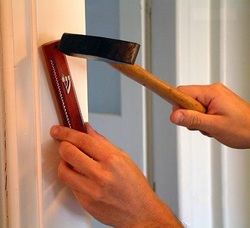 When Removing Mezuzos for Checking the old nails, screws and tape previously used to affix the Mezuzos may be discarded. However, Mezuzah cases and Mezuzah wrappings if no longer needed should be treated as sacred material and require genizah/interment, after their use. It is preferred to have all of the mezuzahs returned to their original doorposts, or at least to the same type of entrance way (i.e., from one bedroom door to another, or from one archway to another) in order that you don’t lower the status of a Mezuzah that was once on a door required Midoraisa (Biblical) to a entrance way that is only Rabbinical. A practical suggestion: when removing the mezuzahs, label each mezuzah case with a number (using masking tape or the like). Tape an identical number on the doorpost from which it was removed. When the mezuzahs are remounted, match the numbers from your cases to the numbers on the doorposts. When removing Mezuzos for Checking, or renovations are being done, or for any other reason when the Mezuzah is remounted, the blessing should be recited only if the Mezuzah was off the doorposts for at least one night. If you are also adding new Mezuzahs at this time, it is preferable to recite the blessing on a new one (providing that it is mounted on a door that requires a blessing). 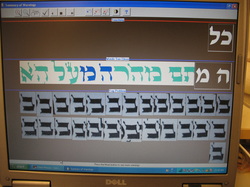 Computer checkingIn addition to a Sofers examination, we strongly recommended you to have a computer checking done as well. Although examiners do the best they can, humans can make mistakes which the computer can catch. However, it is not a substitute for the manual examination, for although the computer can successfully catch missing and substituted letters, it can not determine letters with a problematic shape if they are Kosher or not, or do the actual repairs if necessary. This can only be accomplished through a meticulous manual examination by a qualified Sofer. The cost for a computer examination is minimal and a one time expense. If you have never had your Teffilin or Mezuzos computer checked, it is advisable to do so the next time you have them examined. 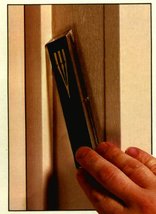 The Kitzur Shulchan Aruch states that Mezuzos and Tefillin should optimally be checked on a yearly basis. If that is not possible then Mezuzos must be checked at least every three and a half years. Tefillin, However, have no mandatory time frame for checking. Rather they should be checked based on how they are handled, how often they are used, and atmospheric condition. As such. it is a good idea to inspect your Tefillin boxes and straps from time to tome to ensure that they are Kosher. If you have any doubts or concerns, or if you have a reason to suspect something is amiss, they you should have your Mezuzos and Tefillin checked right away. By checking your Meuzuzos regularly you will prevent serious problems from occurring as well as a potential big expense of having to replace your Mezuzos. If the letters start to grey or if the letters and crowns begin to form a small crack and break this will cause the Mezuzah to become not Kosher, if caught in time it can be fixed, however if it goes years without attention chances are it will be too late the breaks will be to big to be able to fixed and it will have to be replaced. As well unfortunately there are Mezuzos and Tefillin that were Not Kosher from the get go, and when a Sofer Checks Mezuzos or Tefillin there are many potential problems he is looking out for, such as: Letters, Words or/and Tagim that are Missing, Extra, Substituted, Touching, Broken. Improperly Spaced, Deformed. Faded, Cracked and weather damaged. As you can imagine that is a a lot to focus on while checking a Mezuzah or Tefillin. Very often when a Mezuzah has a lot of one particular problem such as problematic spacing the Sofer will be giving most of his attention to fixing the problematic spacing and not be giving 100% to other areas such as missing or added letters... Therefore the more often a Meuzah or Tefillin is checked the greater the chance all problems if any will be discovered. |
Categories
All
AuthorRabbi Kass was ordained by Rabbi Yisrael Meir Lau, former Ashkenazik Chief Rabbi of Israel. He is certified as a Sofer for both Kesivah and Hagoah by one of the leading experts in Safrus, Rabbi Avrohom Tzvi Vosner, Rav of the Vad Mishmeres Sta”m. Archives
March 2018
|
What our clients say about us: |
To enhance our service quality, we operate on an appointment-only basis.
Please contact us to make an appointment. $12.99 Flat rate shipping! Mezuzahs, Tefillin & Accessories! |
|
